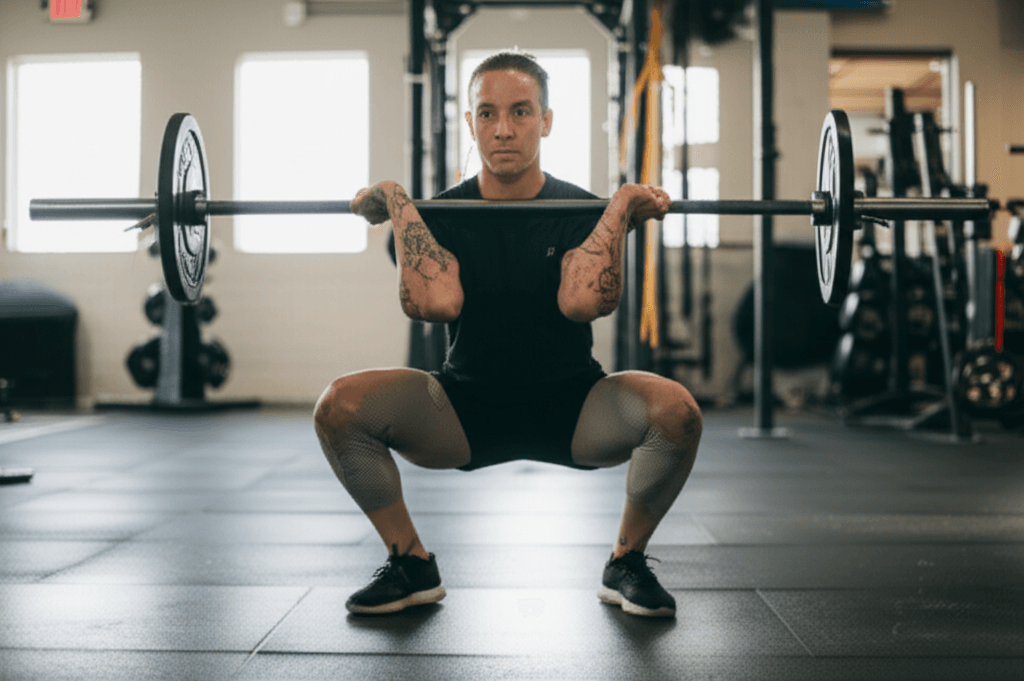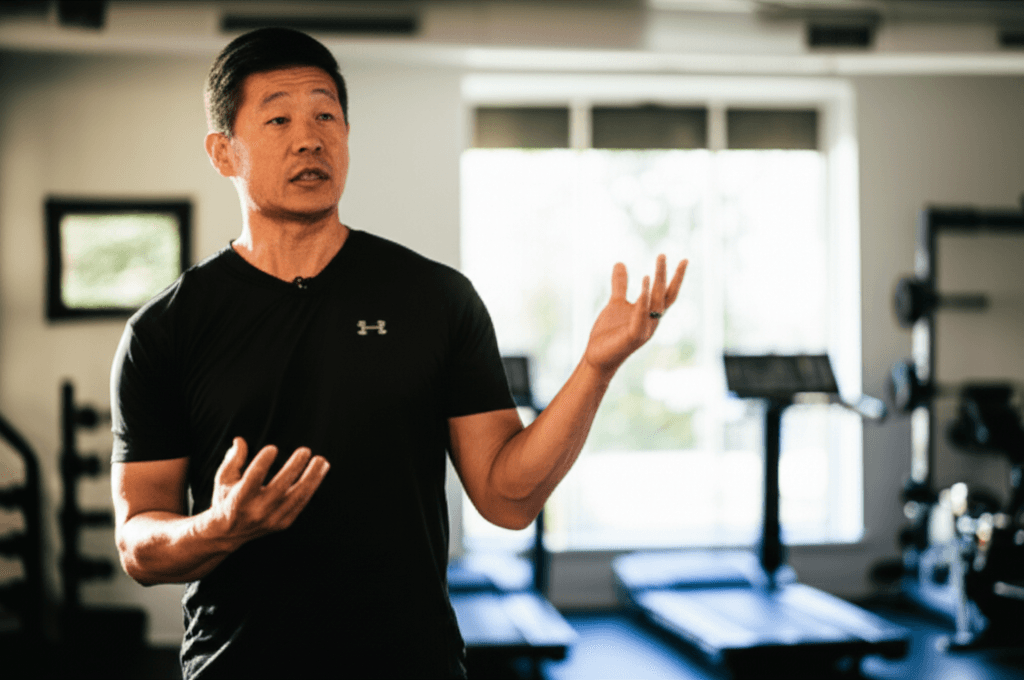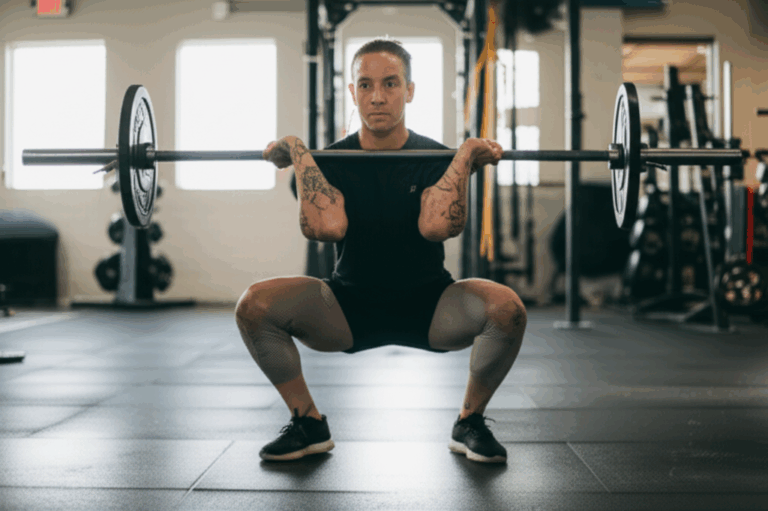As women enter their 40s, hormonal shifts, such as declining estrogen levels during perimenopause, can impact muscle mass, bone density, and metabolism, making it more challenging to stay strong and lean. However, fitness coach Angela Foster recently shared seven essential habits that have helped her not only maintain but improve her strength and leanness in her 40s, emphasizing that these strategies work with the body’s changing physiology.

Prioritize Strength Training 3-4 Times Per Week
One of the most crucial habits Foster highlights is consistent strength training. She recommends lifting weights three to four times per week to combat the natural decline in muscle mass and bone density that occurs as estrogen levels drop in perimenopause. Building and preserving muscle through resistance training is vital for boosting metabolism, aiding in weight management, improving mobility, supporting bone density to prevent osteoporosis, and stabilizing joints.
For women over 40, a focus on proper form with lighter weights initially, gradually increasing intensity and weight as strength improves, is recommended. Incorporating compound movements like squats, deadlifts, rows, and push-ups can be highly effective, as they work multiple muscle groups simultaneously, maximizing workout efficiency. Consistency is key, with aiming for two to three strength sessions per week and allowing for rest days between working the same muscle groups.

Incorporate Zone 2 Cardio 1-2 Times Weekly
Beyond strength training, Foster suggests including Zone 2 cardio one to two times per week. Zone 2 cardio involves exercising at a low to moderate intensity, typically 60-70% of your maximum heart rate. Activities like brisk walking or cycling at this intensity can significantly boost energy, improve mood, increase motivation, and support better sleep. Regular cardio, along with strength training, contributes to overall physical and mental well-being and helps in maintaining cardiovascular health.

Move Throughout the Day
Foster also emphasizes the importance of consistent movement throughout the day, beyond dedicated workout sessions. This habit helps counteract the effects of a sedentary lifestyle and contributes to overall activity levels. Even small increases in daily activity, such as walking more, can make a noticeable difference in managing weight and boosting metabolism.

Fuel Your Body with Protein at Every Meal
A cornerstone of Foster’s advice is prioritizing protein intake. She advises eating at least 30 grams of protein with every meal. Adequate protein is essential for women over 40 to increase satiety, support muscle protein synthesis, repair muscle damage, and promote recovery, especially given the increased protein needs in midlife. Protein also plays a crucial role in maintaining metabolic rate, reducing hunger and cravings, and preserving muscle mass, which naturally declines with age. Sources of lean protein include eggs, seafood, poultry, beans, lentils, soy, and low-fat dairy.

Consider Creatine and Magnesium Supplementation
Foster also includes taking creatine and magnesium daily as part of her routine. While the specific benefits for her are highlighted, creatine is known to support muscle growth and strength, and magnesium is vital for numerous bodily functions, including muscle and nerve function, blood sugar control, and bone health.

Prioritize Sleep and Manage Stress
Adequate sleep and stress management are critical yet often overlooked components of a fitness journey, particularly for women over 40. Good sleep is vital for recovery, muscle repair, and muscle building, and it helps regulate hunger hormones. Chronic stress and lack of sleep can hinder progress, increase cravings, and impact overall well-being. Techniques like meditation, deep breathing exercises, and engaging in enjoyable activities can help reduce stress.

Embrace Progressive Overload
While not explicitly listed as one of the seven habits in the provided snippet, the concept of progressive overload is a fundamental principle of strength training that complements Foster’s advice. Progressive overload involves gradually increasing the intensity of workouts by adding weight, reps, or sets over time. This consistent challenge is necessary to continue building strength and muscle. Starting slow and progressively adding weight or reps is crucial to avoid injuries and ensure continuous improvement.
By adopting these habits, women in their 40s can work with their changing bodies to build strength, enhance leanness, and maintain vitality through midlife and beyond.







